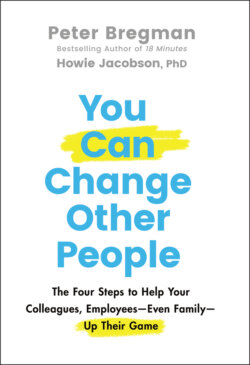Читать книгу You Can Change Other People - Howie Jacobson, Joel McDonald - Страница 21
CHAPTER 7 BECOME AN ALLY: THE RAMONA PROBLEM
ОглавлениеBen leads a marketing team tasked with bringing a new software product to market. And he's frustrated.
Things aren't going well. The team is struggling to identify how the technology could be used and by whom. Without a clear use case—or customer base—the best technology in the world will go to waste, as will all the investment that went into creating it.
Morale is low. Solving this challenge is critical, and the team seems to be getting nowhere. The root of the problem appears to be Ramona, a digital strategist who has been complaining about their process for weeks. She's abrasive, rude, critical, and overbearing.
Over lunch, Ben complains to his colleague Dara. She wants to be a good friend. And she feels two conflicting impulses.
One is to cheer up Ben, to take his side: “That's so awful. Ramona sounds like a terrible person. Is there any way you can get rid of her?”
But Dara also wants to tell Ben how to solve the problem: “Look, it's your team. You set the rules. Just sit down and have it out with Ramona. That's your job.”
Ask yourself: Is either of these approaches likely to help?
If Dara employs the first one, sympathy, she may help Ben feel better in the moment. It's always nice to be told that your perspective is valid. But it won't make him better. It won't help him become more skilled as a leader or more deft as a communicator. Dara would actually be Ben's enabler.
The second approach, advice, looks like it's designed to help Ben grow as a leader. But the underlying message is, “You're not doing this right. I know better.” Ben will bristle, perhaps agree grudgingly, but almost certainly won't act on advice he didn't ask for.
Most people default to one or the other: collusion or criticism. They're both tempting, in different ways. When we take their side, we feel closer to them. Emotionally, it's a safe and satisfying move. A common enemy draws us together.
When we offer advice or criticize, we get a different kind of emotional payoff: We get to feel smart, competent, valuable, and superior—at their expense. And if we do it cleverly enough, we're blameless: “Hey, I'm only trying to help here.”
But neither approach will help Ben get his team on track.
What Dara needs is a third option. One that maintains closeness and connection and that opens the door to actually solving the problem.
She needs an approach that both supports him in this moment and invites him to take ownership of the issue and grow his independent capability to deal with it. For that to happen, Ben needs to see Dara as a supporter, a helpful resource, and a thought partner. He needs to see her as his ally.
The effectiveness of the rest of the process depends on doing this well. After all, how you start something is often the most crucial step. It sets the tone. It determines your trajectory.
The right tone is to approach the person you want to help as an ally, rather than a critic.
When you approach someone as an ally, your strategies and tactics will be far more likely to succeed. Steps 2, 3, and 4 will show you what to do once you're an ally. Step 1 will show you how to establish that relationship from the start.
This can be surprisingly challenging.
Your drive to have the conversation in the first place may be laden with emotion. You want them to change (and maybe you've criticized them in the past) and they may desperately want to achieve a better outcome (and maybe they've tried and failed repeatedly, or they're scared or resistant to change). There's a lot at stake and a lot of feelings on the line.
Being a critic is seductively tempting. It feels good; you don't have to take any responsibility. You get to feel “better than” the person you're advising or criticizing.
But as we've seen, when we approach others from this place, we create resistance rather than willingness to change.
So how do you shift yourself from critic to ally? You do it, as you'll see in the next chapter, from the inside out.
